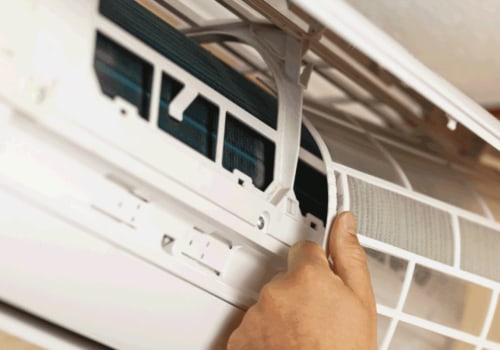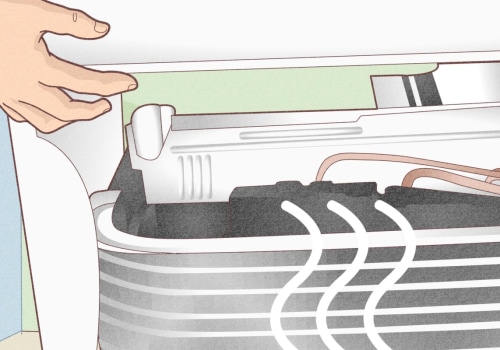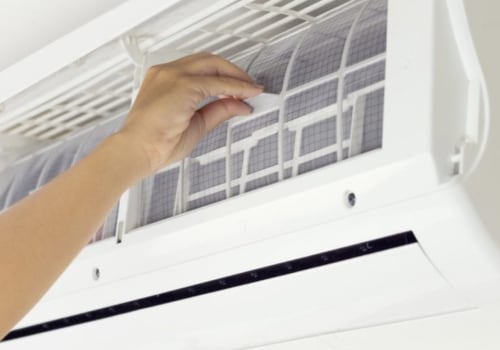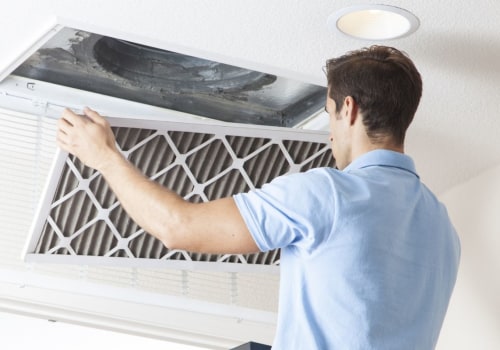How Often Should You Change Your Air Filter?
Keeping optimal indoor air quality is an important element of guaranteeing a healthy living environment. One crucial part of this is frequently changing your air filter, but the concern remains - how often should you replace it? The frequency at which you must change your air filter is affected by various factors that impact its efficiency and lifespan.
By comprehending these elements and following an advised schedule for replacement, you can make the most of the performance of your HVAC system and enhance the air quality in your home. But, what exactly are these elements and how do they identify the perfect replacement frequency? Let's explore this in more detail.
Importance of Regular Air Filter Changes
Regularly replacing your air filter is vital for maintaining optimal indoor air quality and making sure efficient HVAC system is efficient. By sticking to a routine air filter replacement schedule, you can experience a series of benefits that include both expense savings and energy performance. A tidy air filter enables much better airflow, decreasing the workload on your HVAC system and ultimately resulting in energy savings. Additionally, when your system runs efficiently, it can help reduce your utility costs, contributing to long-lasting expense savings.
Moreover, beyond the financial aspects, there are substantial health advantages connected with changing your air filter routinely. Air filters play a vital function in trapping indoor contaminants such as dust, pet dander, mold spores, and other irritants. Failing to change an unclean air filter can lead to these contaminants distributing in your house, potentially worsening respiratory issues and allergic reactions. Therefore, focusing on air filter changes is necessary for creating a much healthier indoor environment for you and your household.
Factors Influencing Replacement Frequency
Provided the importance of preserving optimal indoor air quality and system efficiency through routine air filter modifications, several key aspects affect the frequency at which replacement is needed. One vital factor is the performance of the air filter. Filters with higher efficiency levels tend to record more impurities, causing them to congest faster and require more regular replacements. It is vital to select a filter that strikes a balance between performance and replacement frequency based on your specific needs and air quality issues.
Another substantial factor affecting replacement frequency is the ecological impact of the air filter. Disposable air filters add to lost generation, while recyclable filters may require more upkeep but have a lower ecological impact in the long run. Considering the ecological ramifications of your filter option can help you make a decision that lines up with your sustainability goals.
Recommended Schedule for Air Filter Replacement
To ensure ideal efficiency and air quality in your indoor environment, it is essential to develop a consistent schedule for changing your air filter. Filter efficiency screening is essential to figure out the suitable period for replacement. Typically, it is recommended to change basic air filters every 90 days. Nevertheless, families with pets or allergic reactions might gain from more frequent replacements, around every 60 days.
Cost-saving strategies can be utilized by buying air filters in bulk or investing in recyclable filters that can be washed and reused. Seasonal factors to consider also play a role in the replacement schedule, as filters tend to collect more particles throughout peak usage seasons. Ecological impact ought to not be neglected, and selecting environmentally friendly filters can reduce waste. By adhering to a routine air filter replacement schedule, you not only guarantee the performance of your HVAC system but likewise promote a healthier indoor environment for you and your household.
Signs Your Air Filter Needs Changing
Before your set-up replacement time shows up, specific indications can indicate that your air filter requires changing sooner. Take notice of reduced airflow, increased energy usage, and reduced air quality in your home. Acknowledging these indications immediately can help you preserve a healthy and efficient HVAC system.
Filter Replacement Frequency
Routine tracking of your air filter's condition is vital to ensure sure ideal performance of your HVAC system. Filter efficiency straight impacts expense savings and environmental considerations. A blocked air filter decreases airflow, causing the HVAC system to work more difficult and consume more energy. This not only results in greater energy bills but likewise increases the system's carbon footprint, adding to environmental impact.
To preserve efficiency and reduce energy consumption, it is recommended to change basic air filters every 1-3 months. Nevertheless, households with pets or allergic reactions may need more frequent modifications. Monitoring your filter's condition and following manufacturer suggestions will not only save you cash but also assist in minimizing energy usage and minimizing your home's ecological effect.
Impact on Air Quality
Keeping an eye on the air quality in your house is important for identifying when your air filter requires altering. Frequently changing your air filter not only ensures the effective operation of your HVAC system but also has significant impacts on air quality. A tidy air filter plays an essential role in enhancing indoor air quality, supplying health benefits by lowering the presence of irritants, dust, and other airborne particles. Moreover, altering your air filter regularly can also have a favorable ecological impact by improving energy efficiency, decreasing energy intake, and decreasing carbon emissions. By keeping a tidy air filter, you not only promote a healthier living environment for yourself and your family but also add to a more sustainable future.
DIY Air Filter Replacement Guide
To ensure optimum air quality and system efficiency, it is necessary to properly change your air filter promptly. When it pertains to DIY air filter replacement, following the correct techniques is crucial. Start by turning off your HVAC system before starting the replacement process to ensure safety. Next, locate the air filter-- generally discovered behind a grate on the wall, ceiling, or HVAC system. Eliminate the old filter thoroughly, noting the instructions for airflow shown on the filter frame.
Place the brand-new filter in the same orientation to guarantee it functions successfully. Common mistakes to avoid throughout this process include setting up the filter backward, which can limit airflow and lower performance. Furthermore, utilizing a filter with incorrect measurements can cause air leaks and reduced purification. By adhering to these filter installation pointers and DIY upkeep practices, you can ensure your air filter replacement is done properly, promoting much better air quality and system efficiency.
Benefits of Timely Air Filter Changes
Making sure timely replacement of your air filter is necessary for maintaining optimum air quality and system efficiency. One substantial benefit of changing your air filter on time is expense savings. A clean air filter allows for much better airflow, which lowers the work on your HVAC system. When the system does not need to work as difficult to push air through a blocked filter, it consumes less energy, leading to lower utility bills. Additionally, a clean air filter helps prevent dust and debris from building up in the system, which can lead to pricey repairs and even system failure.
Additionally, routine air filter changes add to energy performance. An unclean filter forces the HVAC system to utilize more energy to keep the preferred temperature level given that it is required to make up for the limited airflow. By changing the air filter as recommended by the producer, you can guarantee that your system runs efficiently, lowering energy intake and ultimately reducing your energy expenses. Focusing on prompt air filter modifications not only promotes a much healthier indoor environment but also equates to concrete monetary benefits.
Professional Maintenance Services
Professional upkeep services play an essential function in guaranteeing optimum indoor air quality and effective HVAC system operation. By sticking to a schedule that consists of regular filter replacement, you can avoid problems caused by dirty filters, such as reduced airflow and potential system breakdowns. Therefore, comprehending the filter replacement frequency and the overall significance of maintenance is necessary for keeping a healthy and well-functioning HVAC system.
Filter Replacement Frequency
Regularly altering your air filter is important for keeping optimal indoor air quality and guaranteeing the performance of your HVAC system. Filter efficiency plays a substantial function in this upkeep regimen. A tidy air filter traps dust, pollen, and other particles, preventing them from distributing in your house. This not only improves the air you breathe but likewise boosts the total performance of your HVAC system. By changing your air filter routinely, you can also attain expense savings. A stopped-up filter forces your HVAC system to work harder, taking in more energy and potentially resulting in higher utility costs. Therefore, by adhering to a suggested filter replacement schedule, you can promote filter performance, minimize costs, and delight in cleaner indoor air.
Importance of Maintenance
To maintain the efficiency of your HVAC system and sustain optimum indoor air quality, engaging professional maintenance services is vital. Expert upkeep services not only ensure the longevity of your system but also enhance filter effectiveness by regularly inspecting, cleaning, and replacing air filters. Filters play an important function in trapping dust, allergens, and other indoor toxins, preventing them from circulating in your house. Neglecting maintenance can lead to clogged filters, minimizing their performance and enabling indoor pollutants to collect, which can affect the air quality in your home. By purchasing expert upkeep services, you can rest assured that your HVAC system runs at its finest, efficiently removing indoor contaminants and preserving a healthy indoor environment.
Frequently Asked Questions
Can Using a Higher Quality Air Filter Extend the Time Between Replacements?
Utilizing a higher-quality air filter can enhance filter longevity, potentially extending the time between replacements. While the preliminary expense may be greater, the long-term advantages in enhanced air quality and performance effect can validate the investment.
Is There a Specific Brand or Type of Air Filter That Is Recommended for Certain Climates or Environments?
When thinking about various brand names or kinds of air filters for particular environments or environments, elements like filter performance, expense efficiency, ecological effect, and sustainability should be prioritized. Pick filters that line up with your region's air quality requirements.
Are There Any Health Benefits Associated With Regularly Changing Your Air Filter?
Regular air filter maintenance plays a crucial role in promoting respiratory health. Timely filter replacement reduces indoor air pollutants, and allergens, and improves air quality, benefiting occupants. Additionally, clean filters enhance energy efficiency, leading to potential cost savings.
How Does Changing Your Air Filter Impact the Overall Efficiency of Your HVAC System?
Regularly changing your air filter is crucial for maintaining optimal HVAC system efficiency. A clean filter reduces energy consumption, promoting savings. Improved indoor air quality due to efficient filtration can also alleviate allergies and enhance overall comfort in your home.
Are There Any DIY Methods to Clean and Extend the Lifespan of Your Air Filter Before It Needs to Be Replaced?
Implementing DIY cleaning and filter maintenance strategies can help prolong the lifespan of your air filter. Simple methods such as vacuuming or gently washing the filter can remove debris and improve efficiency, delaying the need for replacement.
Here is the nearest branch location serving the Jensen Beach area…
Filterbuy HVAC Solutions - West Palm Beach FL
1655 Palm Beach Lakes Blvd ste 1005, West Palm Beach, FL 33401
(561) 448-3760
https://maps.app.goo.gl/xyqVoYNrXPyjRwVy6
Here are driving directions to the nearest branch location serving Jensen Beach…



